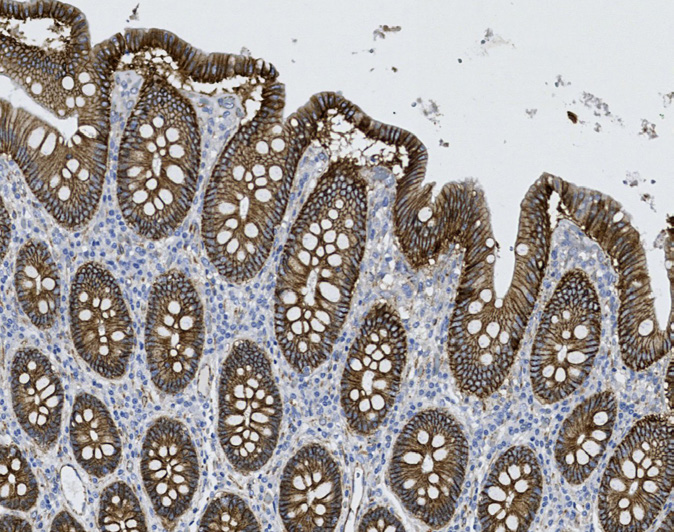Clone: EP35
Host clonality: rabbit monoclonal
Control tissue: liver, appendix, colon adenocarcinoma, fibromatosis lesions
Staining pattern: nuclear, cytoplasmic, and membraneous
Regulatory status: IVD, FDA Class I
|
Product code:
|
8261-C010: RTU, 10 capsules; 1 pack
8261-M250: RTU, 250 tests, 1 cartridge; 1 unit
|
Beta-catenin protein is a cell adhesion molecule that forms catenin-cadherin complex through binding the epithelial cadherin (E-cadherin) protein at juxtamembrane sites. It is normally found in the cytoplasm at a submembraneous location, but mutations in the beta-catenin gene can result in nuclear accumulation of the protein as has been demonstrated in fibromatosis lesions and in colorectal carcinoma.

Strong diffuse membrane and moderate cytoplasmic staining is seen among the benign epithelial cells of the colon. There is no staining in the nuclei.
.jpg)
Weak to moderate membrane staining is seen among hepatocytes. The portal triad shows strong cytoplasmic staining in the bile ductular epithelium and there is weak to absent staining in arteries and veins.
.jpg)
Membraneous staining is present in the benign ductal and myoepithelial cells in this image, but no staining is observed in the in situ or invasive lobular carcinoma. Weak staining of small vessel endothelial cells and scattered
fibroblasts is also seen.